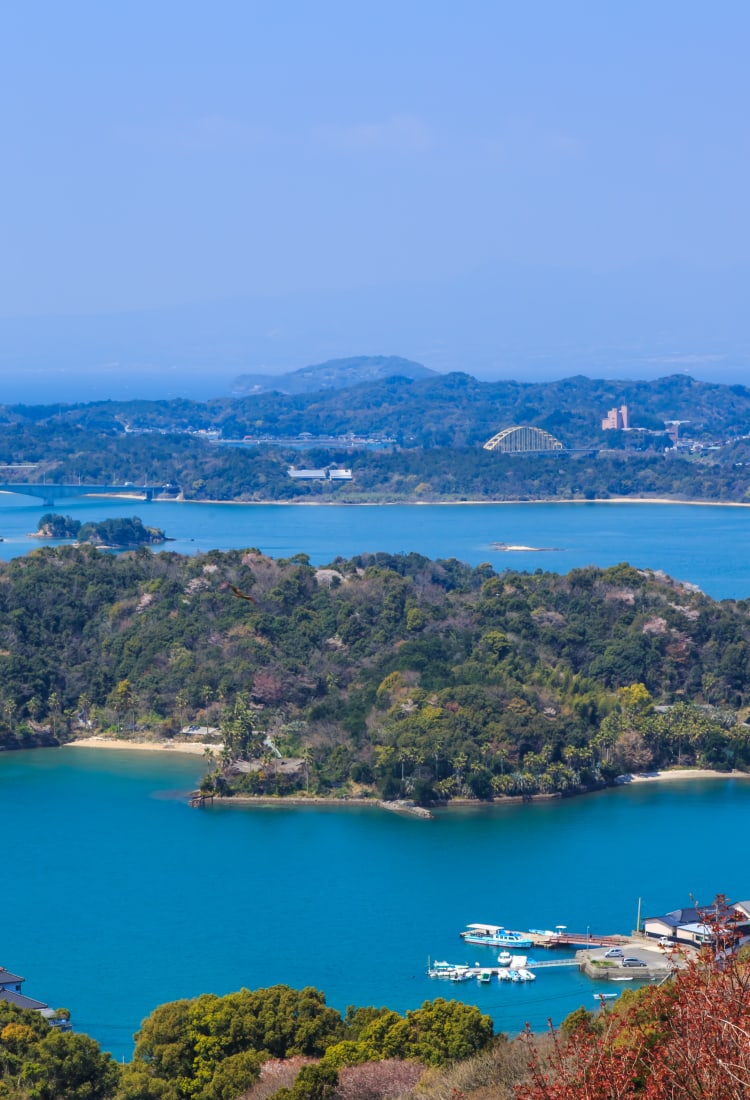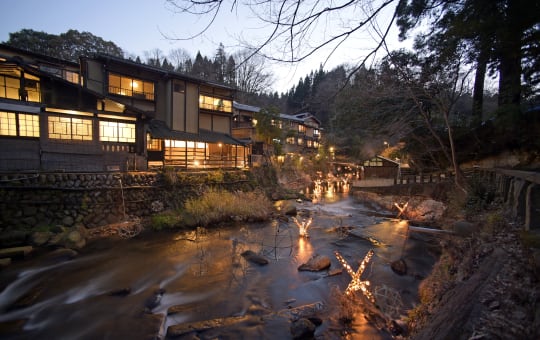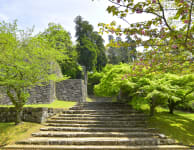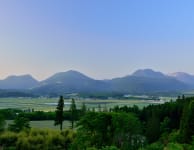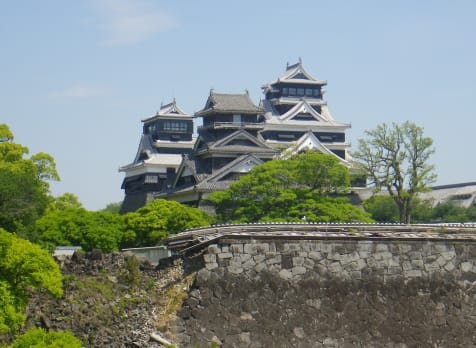Beautiful bay islands with a dramatic history
Connected by bridge to Kyushu, the southernmost island of the Japanese mainland, the islands of Amakusa feature idyllic natural scenery, bountiful marine treasures and fascinating history.
Owing to its relative proximity to the city of Nagasaki, where foreign missionaries first arrived in Japan, Amakusa became one of the nation's main centers of Christianity during a time when the religion was outlawed. Although most people today visit Amakusa to enjoy the area's rustic beauty and marine activities, history buffs interested in this period will find plenty to discover in the area's numerous museums and churches.
Don't Miss
- Dolphin-spotting cruises in the bay
- Museums on Christianity's tumultuous and secret history in Amakusa
- Sampling the local delicacy: sea urchin
How to Get There
Amakusa is accessible via plane, ferry, or bus.
Daily flights for Amakusa Airport depart from Osaka, Fukuoka, and Kumamoto, and hourly buses depart from Kumamoto Station. However, the ferry is by far the most scenic option. Ferries are available from Kuchinotsu Port in Nagasaki, Kuranomoto in Kagoshima, and Misumi East Port in Kumamoto (the best option for JR Rail Pass holders).
For Misumi, take the JR Misumi Line from Kumamoto Station to Misumi Station; Misumi East Port is just outside the station. Catch the Amakusa Takarajima Ferry to Amakusa's main island of Shimoshima. Even in peak times, this boat is rarely packed and offers unrivaled views of the islands. If you have extra time before departure, consider taking a 10-minute bus or taxi to Misumi West Port , which has well-preserved historic buildings that are open to the public.
Once in Amakusa, a rental car is the best option for exploring the island, as buses are infrequent.
An ocean lover's paradise
Amakusa and its surrounding islands offer an abundance of beaches, hot springs, and marine activities like fishing, scuba, snorkeling, wakeboarding and more.
Nearby Goshoura Island is referred to as the "island of dinosaurs" and has a host of museums and fossil sites to explore, while the islands of Tsukinoshima and Hogashima offer glass-bottom boat rides.
All aboard the dolphin cruise
Amakusa consists of more than 120 islands of various sizes, the biggest of which are Shimoshima Island and Ueshima Island. The islands are a natural habitat for wild dolphins. As such, the number one tourist attraction in Amakusa is dolphin spotting.
There are many cruise providers in the area, such as the Sea Cruise Company and the Dolphin Cruise Company.
Enjoy the ride
Getting a great photo of the dolphins is almost impossible, so sit back and enjoy the experience. Dolphin sightings are practically guaranteed, with a 98% success rate. The tours are most popular in the summer, but operate year-round, weather permitting.
Temple of secrets
Myotokuji is one of the Zen Buddhist temples in Amakusa built in 1645 in an attempt to persuade the local Christians to convert to Buddhism. Following the Shimabara Rebellion (1637-8), there was still much resistance by local Christians and persecution continued until the 1850s.
You can learn more about this history at the nearby Christian Museum.
A history of rebellion
The Shimabara Rebellion of 1637 saw thousands of Christians massacred following a long period of famine, taxation and persecution. The rebellious leader, the charismatic sixteen-year-old Amakusa Shiro, was killed in battle by the governing Shogunate forces, but became a revered hero who is still memorialized today. In the aftermath of the rebellion, Christianity was prohibited, and harsh measures were taken to convert Christians back to the official religion of Buddhism.
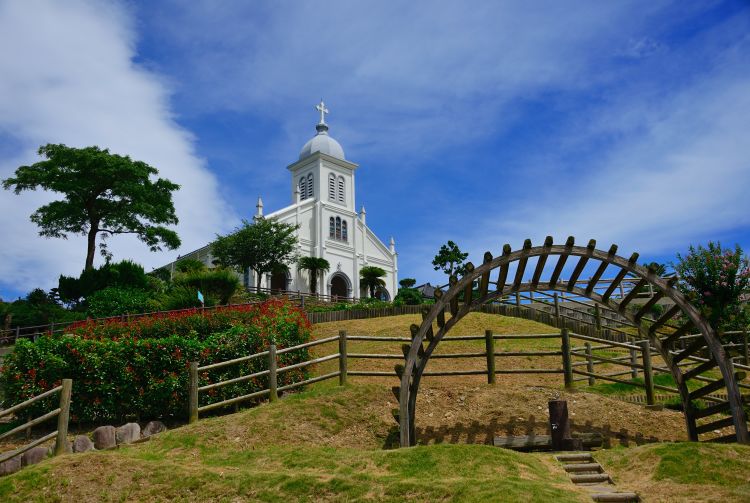
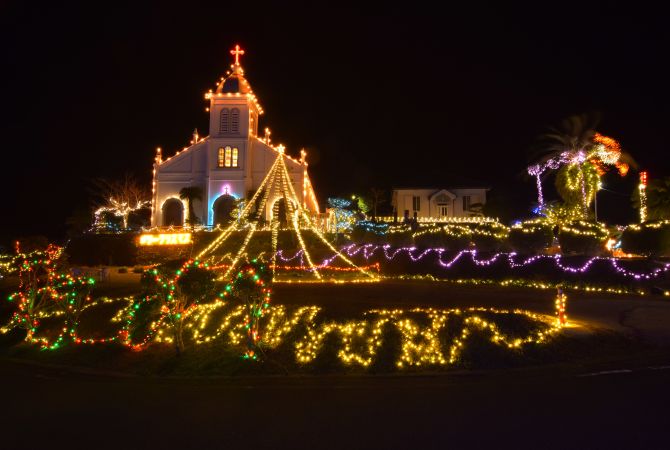
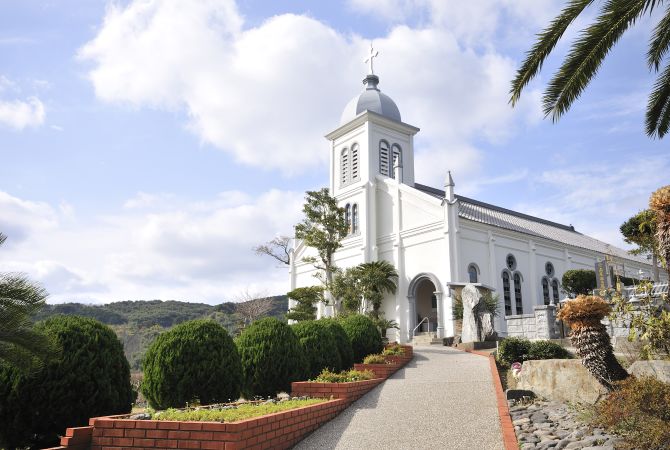

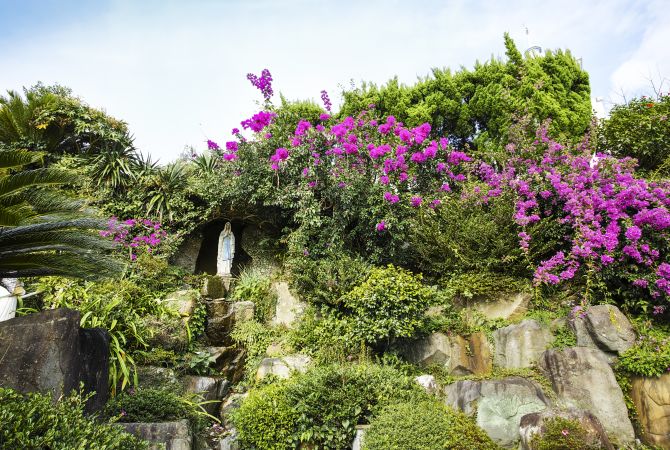
Despite this, large numbers of Christians persisted in Amakusa and the area has remained one of the most Christian regions of Japan to this day.
Coming out of hiding
In 1933, the Romanesque church Oe Cathedral was built by Father Garnier, a French missionary, following the lifting of the ban on Christianity in 1873. Below the church, you'll find the Amakusa Rosario Museum, which exhibits items related to the secret lives of the hidden Christians.
Nearby is Sakitsu Church, a Catholic church built in 1934. Although the building is in the Gothic style, some of the interior is covered with tatami mats, blending in with the lifestyle of the fishing village. The church has been nominated for UNESCO heritage status alongside several other notable sites in Nagasaki Prefecture.
While you're at it
Don't miss the Amakusa Collegio Museum, which explores the history of the area before the Shimabara Rebellion and features a life-sized model of Japan's first printing press.
Other attractions on Shimoshima that aren't related to Amakusa's turbulent past include plenty of beaches, parks and hiking trails. The Shimodo Onsen area on the western side of Shimoshima offers traditional ryokan (Japanese inn) accommodation for those hoping to spend more than a day exploring the islands.





















































